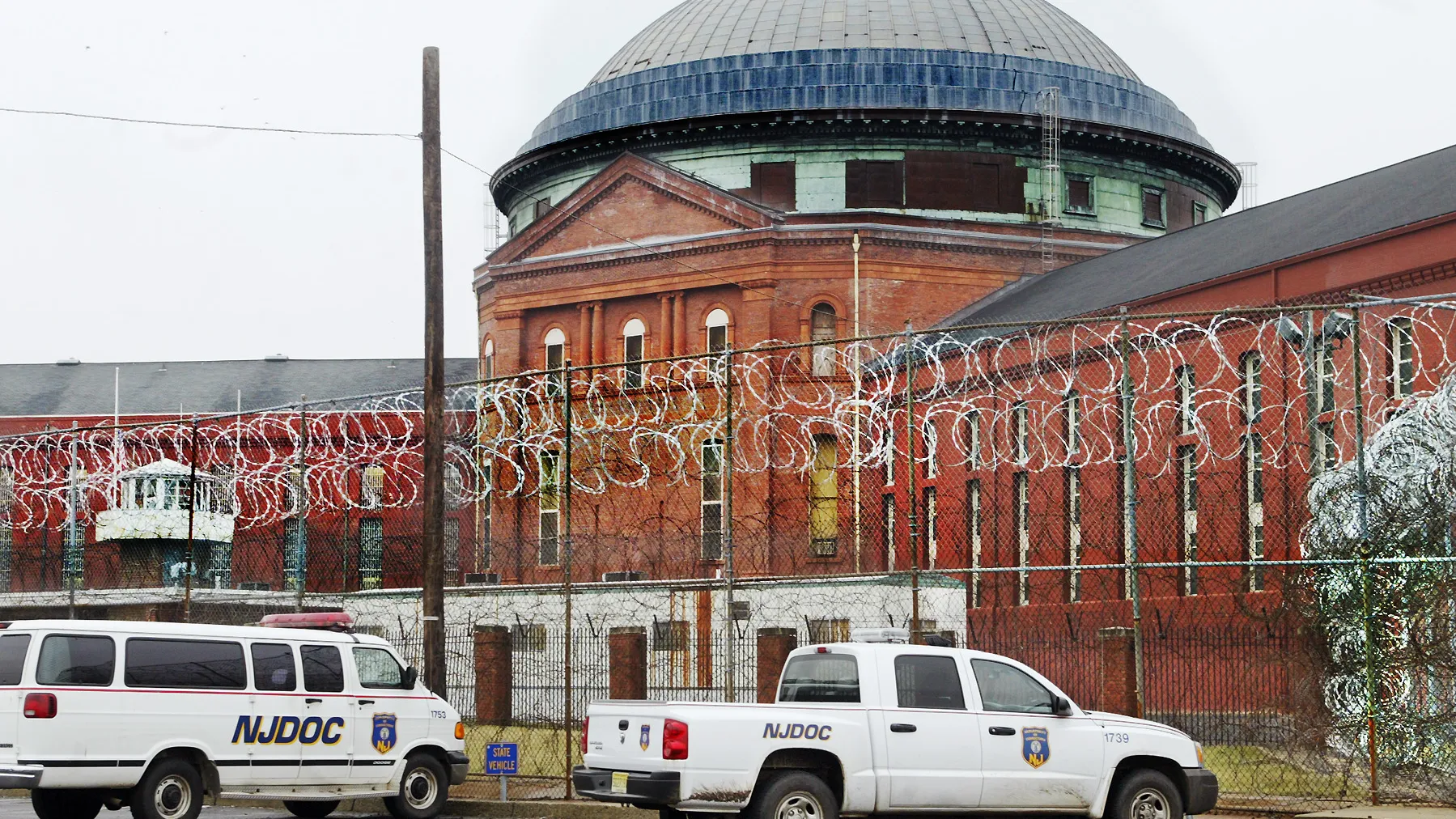A COVID-19 outbreak has hit the New Jersey State Prison (NJSP), prompting a facility-wide, 10-day halt of most movement in the prison that began on Aug. 13.
As of Aug. 17, over 300 prisoners had tested positive for the disease, according to my calculation based on both the number of cells in the quarantine units and the number of people I’ve witnessed coming and going.
The entire prison population — over 1,400 people, including kitchen workers — are now confined to their cells, and activities have been suspended at the gym and prison yard. All work details have been suspended except for a few necessary essential workers, including those who push carts and those who have special needs duties. Religious services, law library access and educational programs have also been canceled.
Meals consist of cold food served on styrofoam trays. A breakfast might include boiled eggs and cereal or cold pancakes and sausages.
In an email, a spokesperson for the New Jersey Department of Corrections (NJDOC) denied that NJSP had been placed on a lockdown. “At this time, approximately 175 incarcerated persons are in medical isolation at New Jersey State Prison, with no reported hospitalizations resulting from COVID-19,” he wrote on Friday, Aug. 19. “NJDOC’s medical provider continues to report that the majority of the individuals are asymptomatic and are being monitored per Centers for Disease Control and Prevention guidelines.”
Comprehensive CDC guidelines on prevention and management of COVID-19 in correctional facilities were last updated in May.
I tested positive on Friday, Aug. 5, and have been asymptomatic. After initially being housed in a unit specifically designated for COVID-19 — South Compound Unit 2-EE — on Aug. 10, I was transferred to the 7-Wing, another quarantine unit that prisoners here refer to as “The Dungeon.”
According to my observation, case counts had grown steadily among the prison population since the beginning of August, and infections among staff had spiked as well. The severity of cases appears to be mostly in line with what the outside world is experiencing — the latest variant is contagious but not making people as sick as before.
One of the prisoners from my housing unit, a fellow incarcerated Muslim, was recently hospitalized due to COVID-19-related heart problems. And according to a person who works in the medical wing and has firsthand knowledge, at least one other prisoner has also been hospitalized due to complications from COVID-19.
In my job for the chaplaincy department, I interact with a variety of people. During a recent religious service, many congregants told me about being sick, and some said there appeared to have been an uptick in the ordinary flu.
Many prisoners expressed fear about being tested because they did not want to be sent to the 7-Wing.
7-Wing is infamous for its 5-by-7-foot metal-walled cells that are stacked vertically, five floors up. The unit lacks air conditioning and is solely equipped with mounted wall fans. Since the prisoners are only allowed desktop fans in their cells, the August heat — which has ranged from the high 70s to the mid-90s — has turned the metal walls into a virtual heat box.
In addition to the heat and illness, prisoners transferred to 7-Wing have had to endure a difficult move. With no elevators, men are forced to hike their belongings up multiple staircases.
Some prisoners on 7-Wing have complained of heat exhaustion and feeling weak. Others were simply tired of moving back and forth, as they have done three and, in some cases, four times due to COVID-19.
Meanwhile, some prisoners here surpassed their required 10-day isolation period for no apparent reason other than their paperwork hadn’t arrived.
Prisoner Bayer Johnson told me that he has been on 7-Wing for 12 days. Another prisoner, who goes by the name Baatin, told me that he has been here for over 15 days, and no one has told him when he will be able to leave.
Many said they worried that they could get reinfected as more sick prisoners are transferred to the 7-Wing.
“I put water in my test,” said a prisoner named Willie, who is also housed in the 7-Wing. “How did they test the water positive?” He added that he knew of other prisoners who had attempted the same.
When explaining what caused the recent outbreak, many prisoners pointed to the policies of the NDOC.
They claimed that there appeared to be two sets of rules for prisoners and staff. Prisoners were being quarantined and isolated for testing positive, inconclusive results or for close contacts. Meanwhile, staff were only made to take five paid days off from the time they received a positive test result, according to one of the staff supervisors. Moreover, staff were not required to be removed from duty in the event they had come in close contact with another employee who tested positive.
CDC in May had recommended quarantine for all prison staff who had come into contact with a person with COVID-19, even if their test result is negative. However, it relaxed its general guidelines earlier this month, recommending that anyone exposed to COVID-19 wear “a high-quality mask” for 10 days and get tested on day five.
The agency still advises that everyone stays up to date on their vaccinations. According to NJDOC data, 72.5% of staff have received at least the first of a two-dose vaccine, or the one-time Johnson & Johnson vaccine. The figure for the prison population is 62.3%.
The frustration among prisoners has been palpable, and has extended well beyond the timeline of the current outbreak. The men have expressed resentment about continually being punished for a disease they can’t protect themselves against and not being able to touch or hug their loved ones.
Many prisoners argue that they themselves are not the reason for the outbreak. As I have heard men inside say, “We are not bringing this in.”
– Originally posted by Prison Journalism Project




